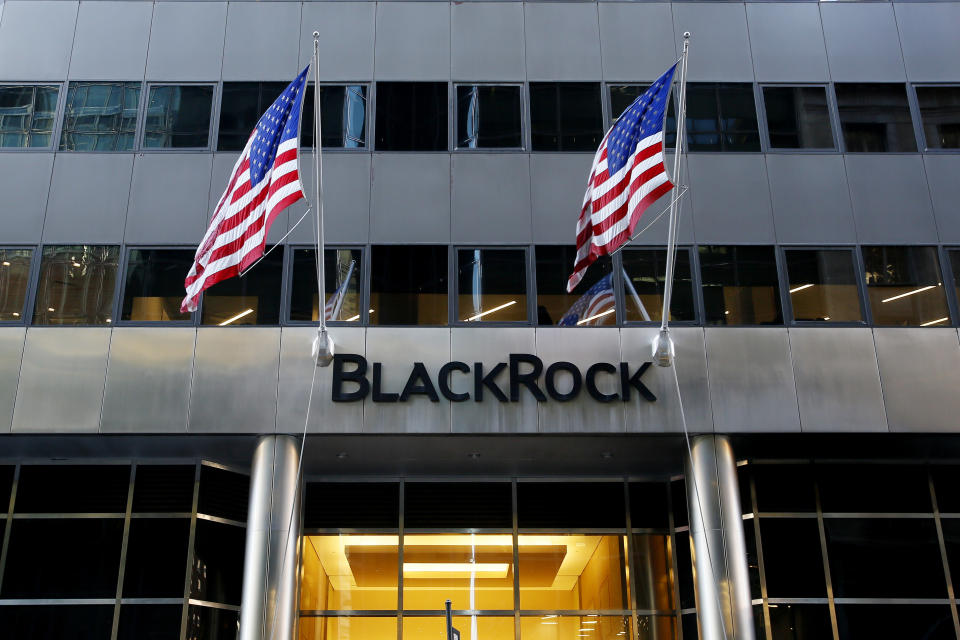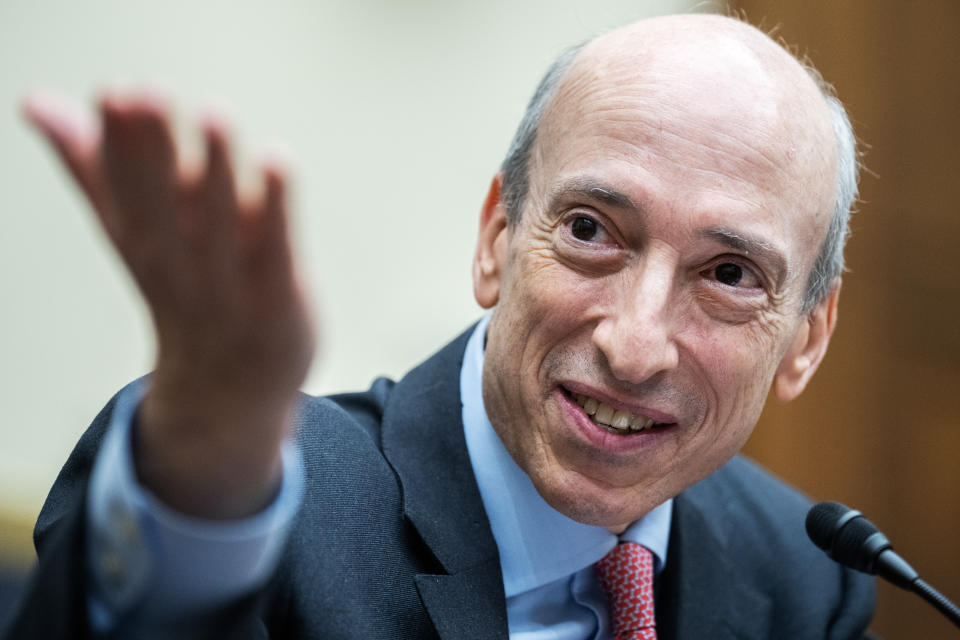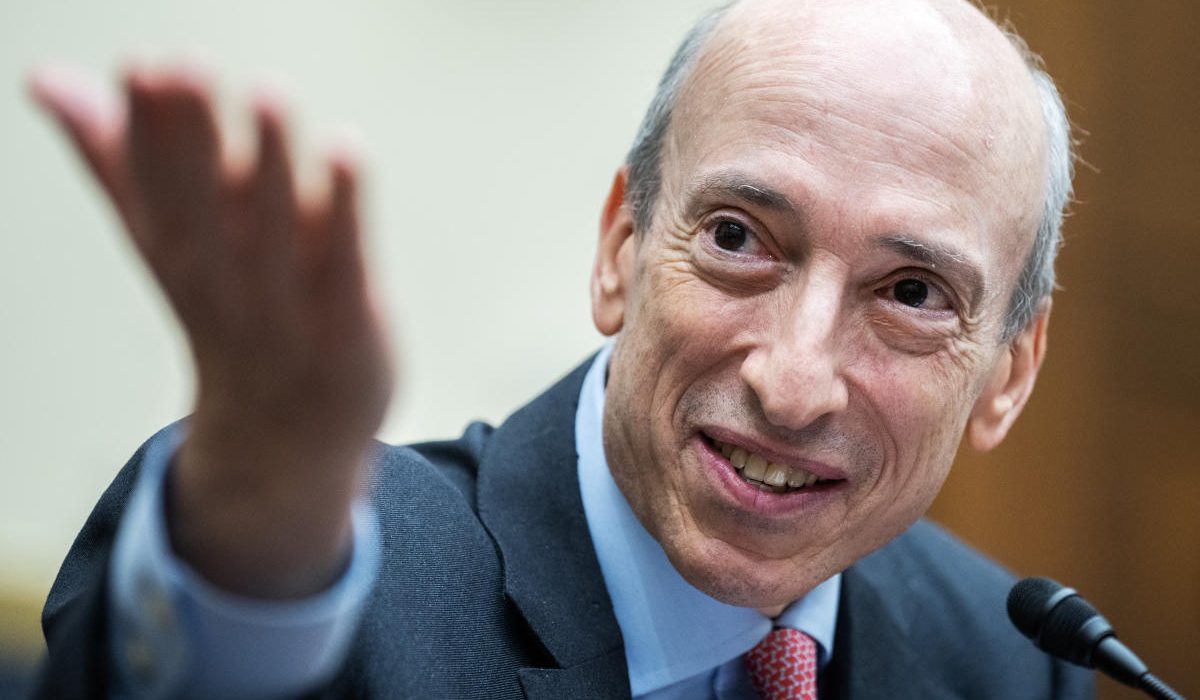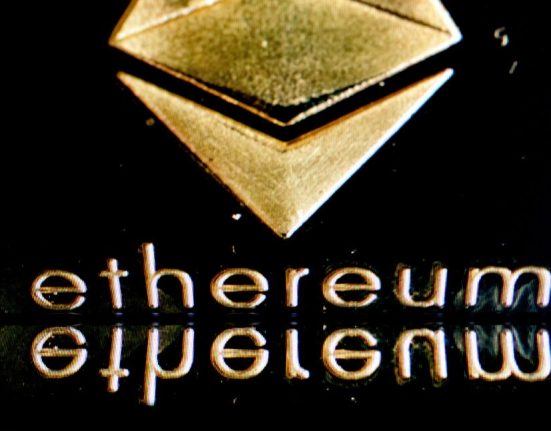Regulators gave a green light to the NYSE and the Nasdaq to list eight exchange-traded funds that hold ether (ETH-USD), but they still have not given approval to money managers that want to issue the new products.
The move from the Securities and Exchange Commission is the first major step towards allowing the ETFs to trade. The SEC will need to approve S-1 forms from the money managers — filings needed to publicly offer new securities — for the actual funds to begin trading.
The regulator gave no indication of when that would happen.
The ETFs could make ether a potential staple in 401(k)s, IRAs, and pension plans and grant the digital asset more mainstream acceptance.
The SEC’s decision comes roughly four months after giving money managers approval to list ETFs that invest directly in bitcoin (BTC-USD), the world’s largest cryptocurrency.
The cohort seeking approval for ether ETFs includes some Wall Street’s biggest names, from BlackRock (BLK), Fidelity and Franklin Templeton to number of firms better known in the crypto world, such as Grayscale, Bitwise and Hashdex.


The price of ether rallied this week as investor excitement about the ether ETF approvals mounted. It fell 2% Thursday by 4 p.m. eastern time before rallying in the hour before the SEC’s release. The digital asset is still up over 50% year to date, outperforming bitcoin.
The development is the latest example of some success the crypto industry is having in Washington as it pushes for friendlier regulation and greater freedom to launch new products.
On Wednesday, the US House of Representatives voted in favor of a bill that would reduce the influence of the SEC and establish the Commodities and Futures Trading Commission (CFTC) as crypto’s primary regulator.
That bill still must pass the Senate. The White House said Wednesday it opposed the bill “in its current form” but that it does hope to establish new rules for the industry.
“The Administration looks forward to continued collaboration with Congress on developing legislation for digital assets that includes adequate guardrails for consumers and investors while creating the conditions needed for innovation, and further time will be needed for such collaboration,” the White House said.
Matt Hougan, chief investment officer of Bitwise, told Yahoo Finance Live before the SEC announced its exchange approvals that he has noticed “a real sea change in Washington around crypto.”
“It looks like Washington has gotten the message that crypto is good for America and that it’s popular with American voters,” he added.
The irony of the approvals announced Thursday is that they are coming from an agency that has served as a longtime foe of the industry via enforcement actions and lawsuits targeting some of the biggest players.
And for years the SEC denied applications to create spot ETFs tied directly to cryptocurrencies.
A key development that changed the calculus for the SEC came last August when one of the ETF applicants, Grayscale, won a key legal victory over the SEC.
Grayscale had sued the SEC in 2022 after it wasn’t allowed to convert its Grayscale Bitcoin Trust (GBTC) into a spot bitcoin offering.
Its core argument was that the agency had already approved exchange-traded products that held bitcoin futures contracts and thus had “acted arbitrarily and capriciously.”
A three-judge panel of the District of Columbia Court of Appeals in Washington sided with Grayscale, saying the firm had “advanced substantial evidence” its product was similar to bitcoin futures ETFs previously approved by the SEC.


That forced the SEC to reconsider Grayscale’s spot bitcoin ETF application, along with others filed by rival money managers.
When the SEC approved the bitcoin products in January, SEC chair Gary Gensler made it clear that his agency “did not approve or endorse bitcoin” and called the decision “the most sustainable path forward” following the key court defeat.
Gensler mentioned this turn again during a speech he delivered Thursday morning in Washington, saying “after probably two dozen orders from the Commission, DC circuit took a different view and we took that into consideration and pivoted.”
The signs that approvals might be coming for ether ETFs intensified this week when SEC staff began sending comments to exchanges that planned to list the products, including Nasdaq and CBOE.
One clear request the agency asked of applicants was to revise their products so that ether held by the issuer could not be staked to earn an additional yield.
Ether has a market capitalization of more than $450 billion, accounting for approximately 18% of crypto’s total market value, according to Coinmarketcap. The cryptocurrency is the native coin for the ethereum blockchain.
Unlike bitcoin, its blockchain uses a different verification and governance structure known as proof-of-work. That means instead of cryptocurrency mining, ethereum transactions are verified by users who deposit their ether in return for yields in a process known as staking. Ether has yet to be labelled as a non-security asset by the SEC.
For the crypto market, the implication of its approval means that “people will start betting on which crypto asset will be the next ETF” according to Sean Farrell, head of crypto strategy with Fundstrat.
“I am certain that there will now be criteria that can be met by other [crypto] assets and should that criteria be met, there’s now precedent that there can be an ETF brought to market,” Farrell added.
David Hollerith is a senior reporter for Yahoo Finance covering banking, crypto, and other areas in finance.
Click here for in-depth analysis of the latest stock market news and events moving stock prices.
Read the latest financial and business news from Yahoo Finance







